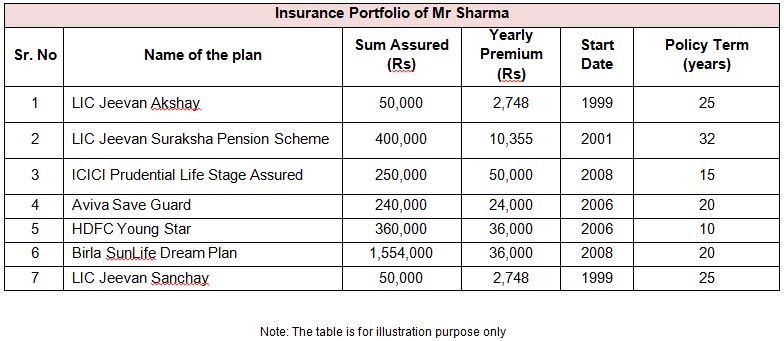4 minsJuly 9, 2017
“Open your minds, my friends. We all fear what we do not understand”, said Professor Robert Langdon, the protagonist in Dan Brown’s book “The Lost Symbol”, to his class.
Pause for a moment and go through the words again. Let them sink in. Do they sound familiar?
Have you felt fear when you tried something new for the first time, especially, when you decided to venture out of your comfort zone?
Did negativity and self-doubt fog your mind?
“What if things don’t go right?”
“Am I making the right decision?”
“What if I fail these exams?”
“What if I lose the money I invested?”
…and much more!
FEAR is one of the four most powerful emotions we human beings can experience and it plays an important role in our decision making. In fact, Carl Richards, a U.S. based financial planner suggests that the fear of losing money outweighs the happiness
of making more.
It is no secret that Indians are conservative investors (or in personal finance parlance, we are risk-averse). Words like “guaranteed”, “money-back”; “fixed-returns” etc. allure us. These words pacify our deepest
fears and assure the safety of our capital. But as a prospect, you need to be conscious of your insurance needs, and choose an insurance policy appropriately.
Here was the list of insurance policies held by Mr Sharma…

Mr Sharma was paying an annual premium of Rs 1,61,850 across these insurance plans. And thanks to the auto-debit facility that he paid the premiums for these diligently. You see, unlike Systematic Investment Plans (SIPs)
in mutual funds, insurance premiums are forced savings. Seldom investors fail to pay the premiums to satisfy an immediate want.
The question one should before purchasing a policy is: Will this amount of insurance coverage sustain my family’s needs once I’m gone?
You see, life insurance in its purest sense is for indemnification against a financial loss to your family in case of the demise of the breadwinner. Yet in the interest of the financial wellbeing of your loved ones, this is necessary because the
second name of life is uncertainty.
Human Life Value (HLV) — expense method, is a scientific medium, to determine your true life value accounting for factors such as…
- Life expectancy of your spouse
- Number of children
- How old the children are, and how many years they’ll be dependent on you
- The financial goals you’re addressing for the dependents
- Your monthly household expenses (excluding your personal expenses)
- Lifestyle expenses
- Contingency reserve (if any)
- Assets
- Current insurance (if any)
- Outstanding loans
- Cost of inflation
...and many more!
.jpg?sfvrsn=d2c29b55_2)
Broadly, under the HLV – expense method, from the annual income, the breadwinner’s personal expenses are deducted and the aforementioned facets – which involve financial goals of your family members, loans, lifestyle, etc. –
are considered.
Let’s understand this with the case in point of Mr Sharma, age 40.
Mr Sharma earns Rs 15,00,000 per annum and spends Rs 6,36,000 per annum on his family as monthly household and lifestyle expenses.
He wants to provide for his wife Radhika during the retirement phase and take care of the education and marriage expenses of his children—Vikas and Vaishali. Vikas, his son, is 9 years old and Vaishali is 6 years old.
Assuming inflation rate is 8% p.a., the risk-free investment rate at 7.3% p.a., and the other specific details as per the table below, HLV using the expense method will be calculated as under…
| Family’s monthly expenditure (per month) (Rs) | 35,000 |
| Family’s annual lifestyle expenditure (Rs) | 2,16,000 |
| Percentage of monthly household expenses on Mr Sharma (%) | 15 |
| Percentage of annual lifestyle expenses on Mr Sharma (%) | 25 |
| Expected inflation on household expenses (%) (assumed) | 8.0 |
| Expected return on risk free securities (%) (assumed) | 7.3 |
| Number of financial dependents | 3 |
| Dependent 1: Spouse - Radhika | |
|---|
| Spouse - Radhika’s current age | 36 |
| Number of years Radhika will be dependent on Mr Sharma | 44 |
| Percentage of monthly expense spent on Radhika (%) | 25 |
| Percentage of annual lifestyle expense spent on Radhika (%) | 25 |
| Provision for retirement planning for Radhika (Rs) (rounded off) (present value) | 25,56,325 |
| Total monthly expense on Radhika (Rs) | 13,250 |
| Financial Value of Mr Sharma’s life to Radhika (Rs) (rounded off) (A) | 1,06,29,532 |
| Dependent 2: Son – Vikas | |
|---|
| Son - Vikas’s current age | 9 |
| Number of years Vikas will be dependent on Mr Sharma | 19 |
| Percentage of monthly expense spent on Vikas (%) | 25 |
| Percentage of annual lifestyle expense spent on Vikas (%) | 25 |
| Provision for graduation for Vikas (Rs) (rounded off) (present value) | 10,81,156 |
| Provision for post-graduation for Vikas (Rs) (present value) | 16,64,469 |
| Provision for marriage expenditure for Vikas (Rs) (present value) | 11,31,505 |
| Total monthly expense on Vikas (Rs) | 13,250 |
| Financial Value of Mr Sharma’s life to Vikas (Rs) (B) | 70,82,236 |
| Dependent 3: Daughter - Vaishali | |
|---|
| Daughter – Vaishali’s current age | 6 |
| Number of years Vaishali will be dependent on Mr Sharma | 22 |
| Percentage of monthly expense spent on Vaishali (%) | 25 |
| Percentage of annual lifestyle expense spent on Vaishali (%) | 25 |
| Provision for graduation for Vaishali (Rs) (rounded off) (present value) | 11,02,454 |
| Post-graduation expenditure for Vaishali (Rs) (rounded off) (present value) | 16,97,258 |
| Marriage expenditure for Vaishali (Rs) (rounded off) (present value) | 13,75,580 |
| Total monthly expense on Vaishali (Rs) | 13,250 |
| Financial Value of Mr Sharma’s life to Vaishali (Rs) (rounded off) (C) | 79,23,655 |
| Other Areas… | |
| Outstanding loans (Rs) (D) | 45,00,000 |
| Other liabilities (Rs) | 0 |
| Contingency fund that will be required by the family (Rs) (E) | 10,00,000 |
| Current life insurance (Rs) (F) | 50,00,000 |
| Assets that the family will be able to financially use in case of Mr Sharma’s demise (Rs) (G) | 12,00,000 |
| Total insurance requirement (Rs) (A+B+C+D+E-F-G) | 2,49,35,423 |
| This table is for illustration purpose only |
So, with these vital assessment and the inputs, it is clear that Mr Sharma needs an additional insurance of Rs 2.50 crore as per HLV – expense method.
Yes, estimating HLV is a bit complex; but you can always use the HLV calculators available online to get a sense of optimal insurance coverage required to protect the financial interest of your loved ones.
What next?
Once you’ve determined the optimal insurance coverage, go ahead and choose an appropriate insurance product.
Ideally, life insurance and investment needs should be dealt separately. To address the former, term insurance plans are by far the best. A term policy is a simple pure life insurance which provides a better cost-to-benefit. Meaning, against the
premium you pay, the sum assured is much greater as against endowment, ULIP, money-back policies and likes. In case of Mr Sharma, a term insurance plan with a ‘return of premium’ option was not appropriate because, it demanded
higher premium and the hard-earned money saved therefrom could potentially be invested in other
wealth creating investment avenues so as to accomplish his financial goals.
Most people are not in favour of a term policy, as there is only a death benefit. Also, it is believed that since the insurance is available only for a particular term after which there is no cover, it is not a comprehensive policy. But what they
fail to recognise is the financial security of their family members.
But thereto, selection plays a critical role.
So, before buying an insurance policy from any insurer, here are a few things you must check…
- Promoters background of the insurance company
- Number of years of existence
- Financial background, wherein you need to gauge…
- Claims Settlement Ratio (CSR) – This will help you assess the percentage of claims settled, against the total claims lodged with the insurer (i.e. insurance company).
- Solvency Ratio – This ratio reveals the strength of the balance sheet of the insurance company and its capability to settle insurance claims. It takes into account the net worth and the reserves and surplus held by the insurer.
- Profitability Ratio – This ratio reveals whether the insurance company generates enough income for its stakeholders after meeting all the expenses (both operating as well as non-operating expenses). It helps you gauge the efficiency
and effectiveness with which the insurance company is run.
- Watch out for the devil in the fine print
It would be prudent to go with season players (insurers) rather than the one who are relatively new entrants in the business of insurance. After all when you’re buying an insurance cover, you want peace of mind and not be worried whether
the insurance company will settle the claims or not. However at the time of underwriting, you too should truthfully disclose all the necessary details, so that your family doesn’t face a rude shock later.
You see, insurance planning is an integral aspect in the exercise of financial planning and must be undertaken with utmost care.
Finally, buying insurance is a continuous activity. Every individual's needs change over a period of time. This in turn necessitates a review of your insurance requirement. So, over a period of time, ensure you review your insurance needs so as
to buy additional insurance, if needed, and remain adequately covered at all times.
We believe, without an optimal life insurance cover you are most probably bidding a goodbye to the dreams and financial objectives of your loved ones. To ensure that your family lives a stress-free financial life even after you are gone, it would
be prudent to find out whether you are adequately insured or not.
Lastly, no matter how young you are, don’t procrastinate taking an optimal life insurance cover as no one can foretell when life will change its course. Additionally, you can also get an estimate of your insurance premium using Axis Bank's
life insurance calculator.
Disclaimer: This article has been authored by PersonalFN, a Mumbai based Financial Planning and Mutual Fund research firm known for offering unbiased and honest opinion on investing. Axis bank doesn't influence any views of the author in any way. Axis Bank & PersonalFN shall not be responsible for any direct / indirect loss or liability incurred by the reader for taking any financial decisions based on the contents and information. Please consult your financial advisor before making any financial decision.







.jpg?sfvrsn=d2c29b55_2)




